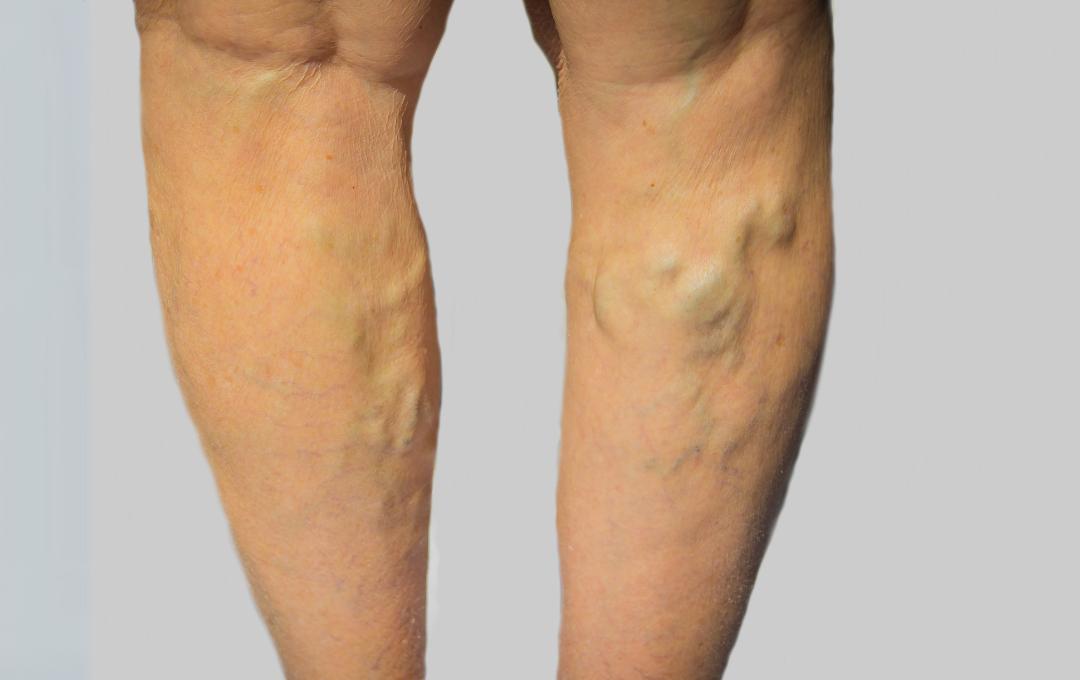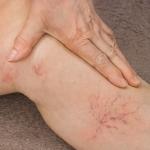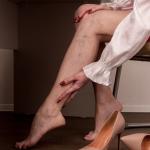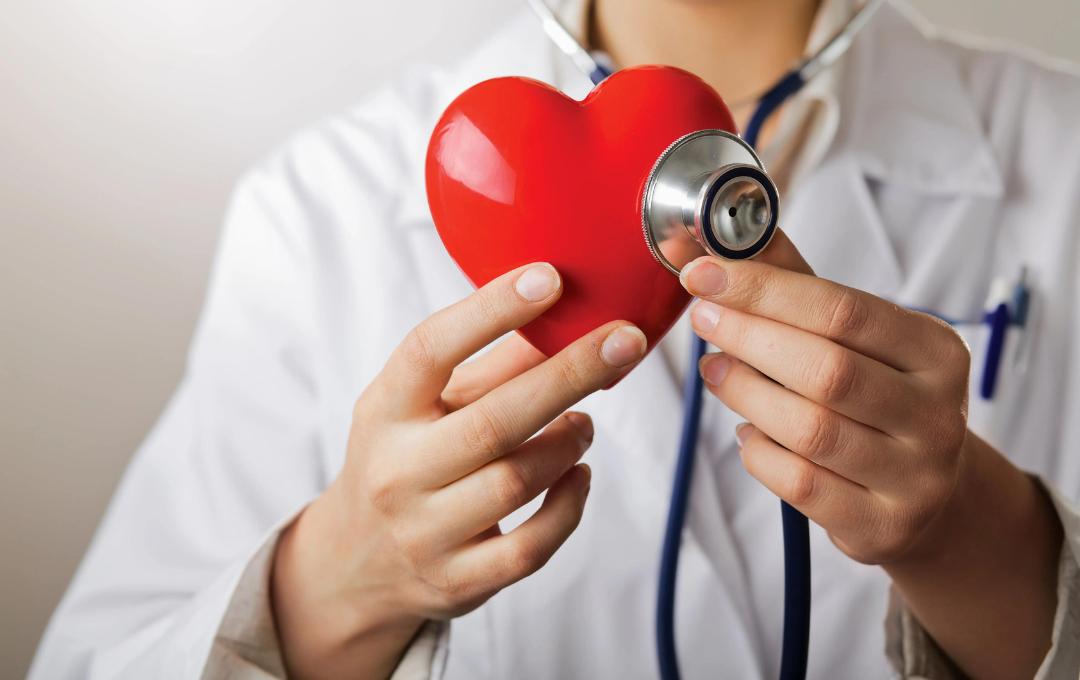
Many people worry that varicose veins are related to heart disease. While varicose veins don’t directly increase one’s risk of heart problems, they can be related to other underlying circulatory issues that do affect heart health.
Every February, we recognize American Heart Month, a time dedicated to raising awareness about vascular health. It’s the perfect opportunity to learn more about the risks, understand how to protect your heart, and discover simple yet effective ways to improve your health and well-being.
According to the CDC, heart disease is the leading cause of death in the U.S., responsible for over 700,000 deaths each year, underscoring the critical need for attention to heart health. Heart disease and related circulatory issues primarily affect the arterial system, which carries oxygen-rich blood away from the heart. Varicose veins, on the other hand, result from problems within the venous system, which returns blood to the heart for oxygenation.
Varicose Veins and Heart Disease
Varicose veins develop due to underlying vein disease, also known as venous insufficiency. This common condition arises when the one-way valves within your veins become damaged or weakened, often due to ongoing strain. These valves normally prevent blood from flowing backward. When they malfunction, blood pools, most frequently in the legs, ankles, and feet, leading to the characteristic bulging and twisting of varicose veins.
Although generally distinct from heart disease, there can be some overlap. In some cases, existing heart conditions can impact the venous system. For example, someone with both heart disease and varicose veins might be at an increased risk for complications like leg swelling or infections around the varicose veins.
If you have concerns about varicose veins, heart disease, or vein disease, it’s important to seek professional medical advice. While varicose veins aren’t caused by heart disease, they can lead to other health complications such as a higher probability of developing blood clots. At USA Vein Clinics, we’re dedicated to helping you understand the causes of varicose veins, identify your risk factors, and explore minimally invasive treatment options if needed.
How to Improve Vein Health
While heart disease and vein disease can sometimes occur together and both conditions involve the circulatory system, varicose veins aren’t necessarily a sign of poor heart health. To support healthy veins and improve circulation consider the following tips:
Lose weight – Losing weight or maintaining a healthy weight can help prevent varicose veins by reducing pressure on your venous system. It can reduce some of the symptoms of varicose veins, such as heavy, tired legs.
Exercise regularly – Blood pools in your legs and ankles when you sit or stand for long periods. If you have a desk job, commit to a 10-minute walk once a day while at the office. Take a break and put your legs up if you stand for long periods. Try to find time to exercise, such as walking, gentle yoga, or swimming.
Quit smoking – Smoking reduces blood flow, constricts blood vessels, and thickens the blood. If you want healthy cardiac and venous systems, do not smoke.
What Are Varicose Vein Symptoms?
Varicose veins are not merely a cosmetic issue. Instead, they are a sign of vein disease and can cause a range of painful symptoms that limit mobility and impact overall quality of life.
Common varicose vein symptoms include:
- Heaviness or achiness in the legs
- Itchiness
- Discomfort
- Leg cramps (especially at night)
- Skin discoloration
If you experience any of the above, we suggest contacting your doctor or a vein specialist for evaluation. Varicose veins can put you at increased risk for developing serious health issues like blood clots and venous ulcers –– open, non-healing wounds that sometimes lead to infection. One type of blood clot that can occur, called Deep Vein Thrombosis (DVT), is a potentially life-threatening medical condition.
USA Vein Clinics offers a range of non-surgical vein treatments that can provide quick symptomatic relief, and help reduce your risks for developing more serious conditions.
Are You at Risk for Vein Disease?
As mentioned previously, there are many risk factors that can lead to both heart and vein disease. These risk factors include obesity, inactivity, poor diet, smoking, and underlying conditions like diabetes and high blood pressure.
When it comes to vein disease, age and genetics also play important roles. We tend to develop varicose veins as we get older, though anyone can get them at any age. If you have a close relative with vein problems, you are more likely to have them. Women are also considered to be at increased risk, especially during pregnancy.
Individuals with jobs that require long periods of standing or sitting tend to develop varicose veins more often. If this describes you, we recommend taking frequent breaks throughout the day to move around. You can also ask your doctor about the benefits of wearing compression socks.
Where Can I Find Varicose Vein Treatment?
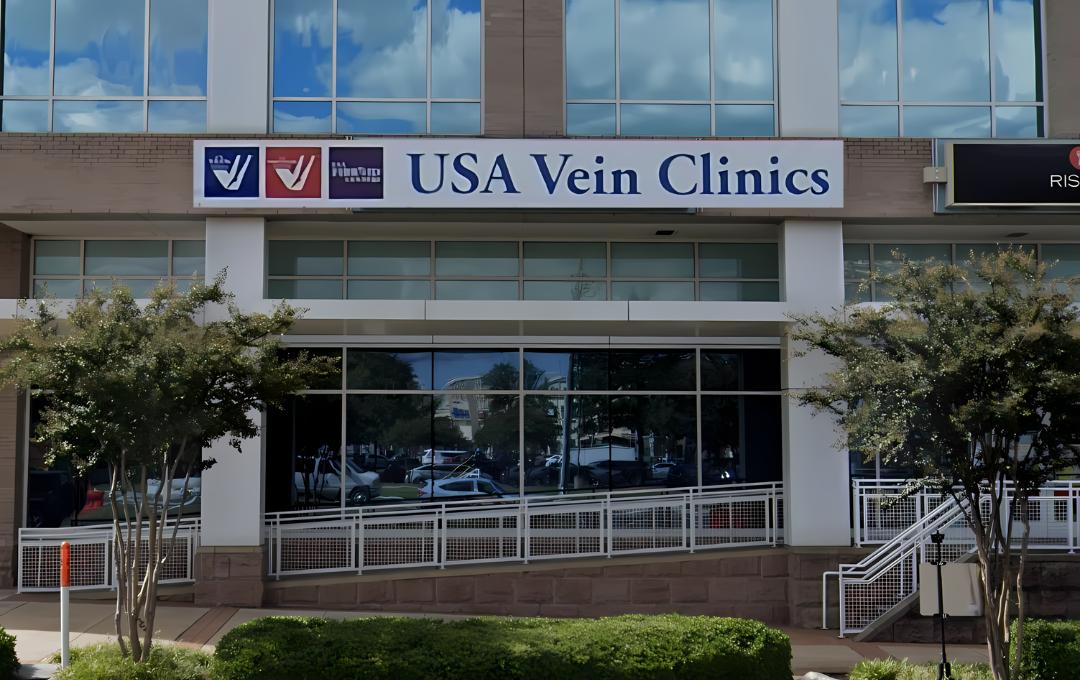
At USA Vein Clinics, we offer minimally invasive vein treatments based on individual patient conditions and needs. Vein disease is considered progressive: when left untreated, symptoms usually get worse. Our skilled vein specialists perform a range of non-surgical, office-based vein procedures that can quickly alleviate pain and discomfort from varicose veins. Most treatments take about an hour from start to finish. You can return to most normal activities shortly.
To learn more schedule an appointment online today or call us at 888 768 3467.
Frequently Asked Questions
Do varicose veins cause heart problems?
Varicose veins are primarily a venous issue (problems with the veins), while heart problems are typically arterial (problems with the arteries). That’s the core reason why varicose veins don’t directly cause heart problems.
Are Varicose Veins a symptom of heart disease?
Varicose veins are not a sign of heart disease. Although your veins and arteries are part of the same circulatory system, they have distinct roles. Arteries carry blood away from your heart, while veins carry blood back to your heart. Varicose veins are a problem with the veins, specifically the valves that prevent backflow. Heart disease involves the arteries, often due to plaque buildup. Therefore, having varicose veins does not mean you have heart disease.
What are the risk factors for vein disease? Are they related to heart disease?
It is important to realize that many of the same risk factors that cause vein disease, such as obesity, inactivity, and poor diet, can also lead to heart disease. If you are at risk, making some recommended lifestyle changes may help you avoid additional health problems.

